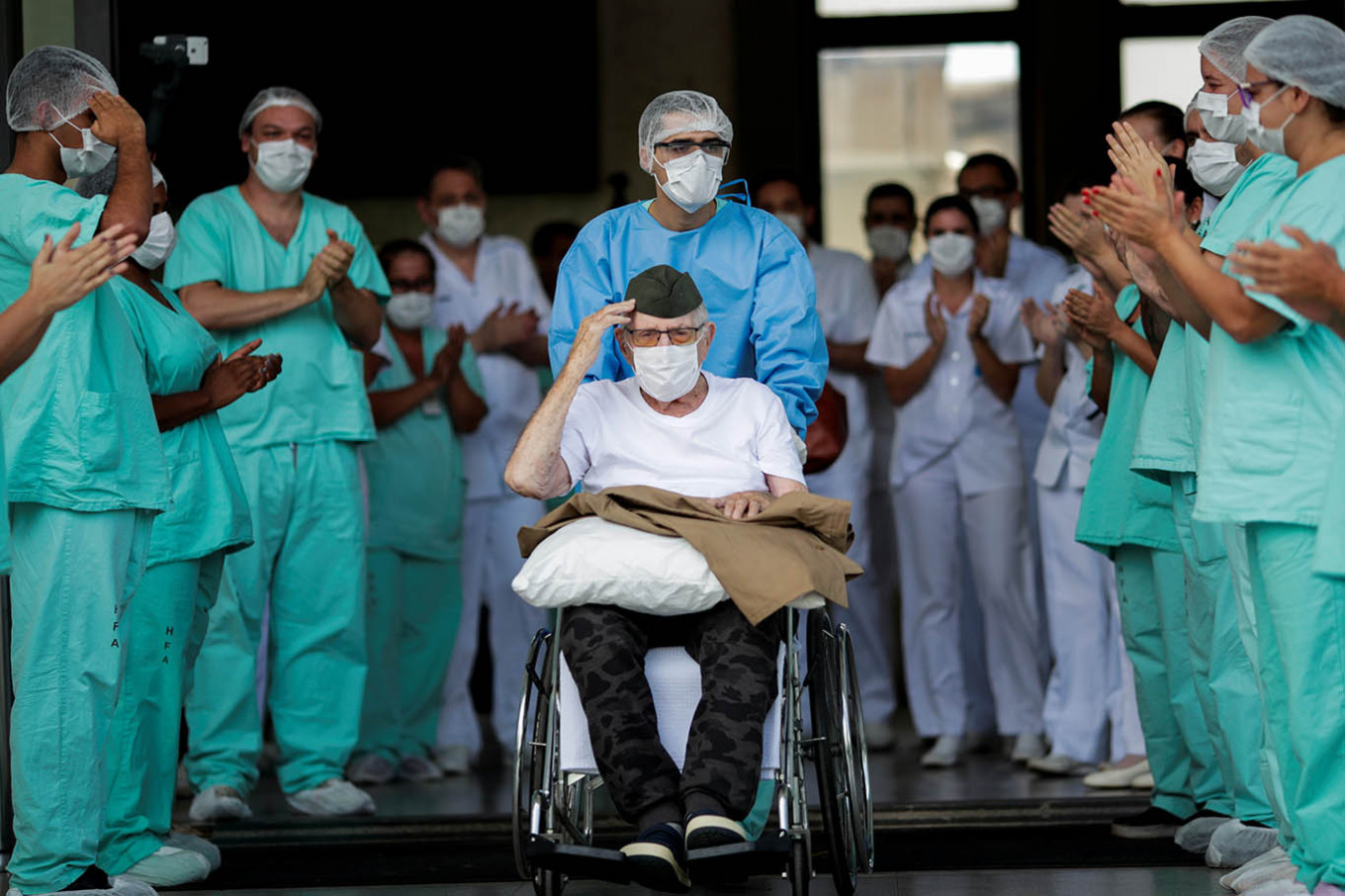Popular Reads
Top Results
Can't find what you're looking for?
View all search resultsPopular Reads
Top Results
Can't find what you're looking for?
View all search resultsA study warns of long-term neuropsychiatric risks among people recovering from COVID-19
Data from past pandemics, such as SARS-CoV-1 in 2002 and MERS-CoV in 2012, indicate higher rates of narcolepsy, seizures and encephalitis in recovered patients.
Change text size
Gift Premium Articles
to Anyone
B
asing their findings on data from past epidemics of respiratory viruses, US researchers warn of the medium- and long-term risks of neurological sequelae in patients who have recovered from COVID-19.
An article by three American researchers at the University of California, San Diego, published in the journal Brain, Behavior, and Immunity, warns of potential long-term neurological impacts on patients who have recovered from COVID-19.
"Reports are already surfacing of acute central nervous system-associated symptoms in individuals affected by COVID-19, including greater stroke incidence in severely infected patients in Wuhan, China, along with delirium and loss of smell and taste senses," points out the main author of the research study Suzi Hong.
Read also: Coronavirus: Loss of smell and taste reported as early symptoms of COVID-19
The research described in this paper focused on the impact that SARS-CoV-2 may have on the human central nervous system and neuropsychiatric outcomes in patients infected with the virus. The study points out that data from previous respiratory viral pandemics, such as SARS-CoV-1 in 2002, H1N1 in 2009 and MERS-CoV in 2012, report higher rates of narcolepsy, seizures, encephalitis (inflammation of the brain) and other neuromuscular disorders in infected patients.
According to the authors of the publication, the neuropsychiatric consequences of the current COVID-19 pandemic are not yet known, but are likely to be significant and could last for years.
"Prospective neuropsychiatric monitoring of individuals exposed to SARS-CoV-2 at various points in the life course, as well as their neuroimmune status, are needed to fully understand the long-term impact of COVID-19," concludes Suzi Hong's team.
Last February, two studies also highlighted the risks of neurological damage linked to different coronaviruses. The first, conducted by scientists from Jilin University, China, showed that virus particles were found in the neurons of patients infected by SARS (2002) and MERS-CoV (2012).
The second research study, carried out by researchers at the Aga Khan University in Pakistan and published in the journal American Chemical Society, points to the possibility that SARS-CoV-2 may exploit a receptor for an enzyme, which is also present in the cells surrounding neurons.








![Let it out: Japanese rocker Hyde holds a solo concert, billed as the Hyde [Inside] Live 2025 World Tour in Jakarta, on Nov. 1, 2025, at Tennis Indoor Senayan in Central Jakarta.
(Courtesy of Sound Rhythm and Mataloka Live)](https://img.jakpost.net/c/2025/11/05/2025_11_05_168574_1762306300._medium.jpg)


